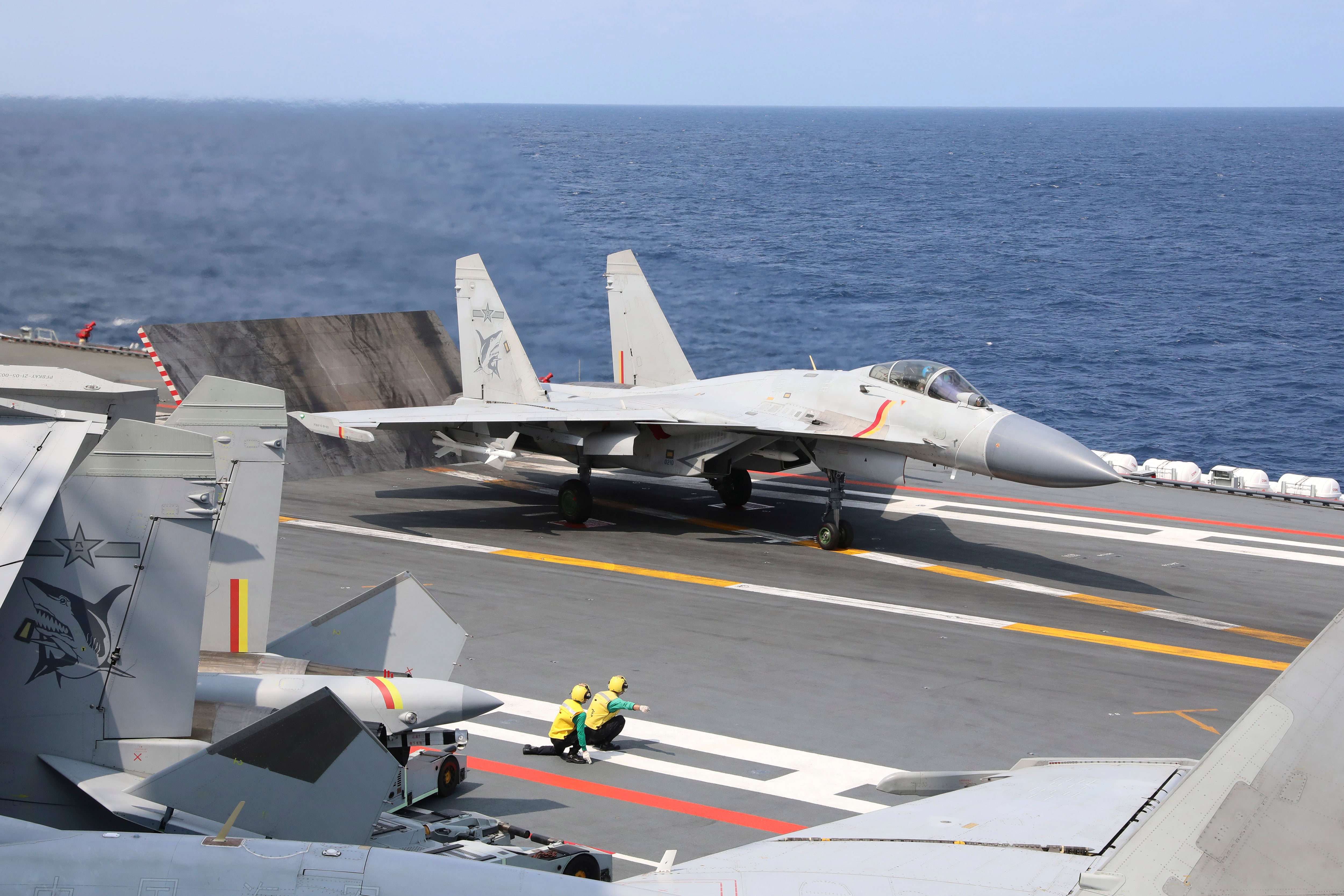Taiwan’s new president Lai Ching-te issues defiant message to China after historic election win
Lai secures an unprecedented third consecutive term for the ruling Democratic Progressive Party despite increasing political and military pressure from Beijing, writes William Yang in Taipei


Your support helps us to tell the story
From reproductive rights to climate change to Big Tech, The Independent is on the ground when the story is developing. Whether it's investigating the financials of Elon Musk's pro-Trump PAC or producing our latest documentary, 'The A Word', which shines a light on the American women fighting for reproductive rights, we know how important it is to parse out the facts from the messaging.
At such a critical moment in US history, we need reporters on the ground. Your donation allows us to keep sending journalists to speak to both sides of the story.
The Independent is trusted by Americans across the entire political spectrum. And unlike many other quality news outlets, we choose not to lock Americans out of our reporting and analysis with paywalls. We believe quality journalism should be available to everyone, paid for by those who can afford it.
Your support makes all the difference.Taiwan has elected Lai Ching-te to become its next president, securing a historic third consecutive term for the pro-sovereignty ruling Democratic Progressive Party in a result that has angered China.
Mr Lai, 64, a former doctor who had served as vice-president to Tsai Ing-wen since 2020, said the election result showed Taiwan will “continue to walk side by side with democracies around the world”, and emphasised that the election highlighted the Taiwanese people’s desire to safeguard their democratic way of life.
“We are telling the international community that between democracy and authoritarianism, we will stand on the side of democracy,” said Mr Lai.
China, which sees Taiwan as part of its territory, has been increasing pressure in recent months – ramping up its military presence and raising fears of a possible invasion. Beijing had cast the election as a choice between “war and peace” and in the wake of the result China released a statement saying nothing would stop what it called the “ultimate and inevitable” unification with Taiwan.
“I hope the other side of the Taiwan Strait can thoroughly understand this kind of voice in Taiwan,” Mr Lai said in remarks on Saturday, promising that he will prioritise dialogue with Beijing on the basis of dignity and parity. “Only ‘peace, reciprocity, democracy and dialogue’ can best serve the interests of the people on both sides of the Taiwan Strait, and is the only way out for a win-win situation,” he told more than 100 journalists.

Mr Lai won 40 per cent of the vote, ahead of Hou You-yi from the China-friendly opposition party Kuomintang (KMT), and former Taipei mayor Ko Wen-je of the Taiwan People’s Party (TPP). The latter is a newcomer with strong support among younger people.
During his concession speech, Hou You-ih, the presidential candidate from the KMT urged all sides to remain united following the election.
As hundreds of thousands of DPP supporters chanted slogans to celebrate Mr Lai’s victory, some Taiwanese voters say the election outcome proves that the Taiwanese people have chosen a leader who can bravely and honestly face the threats posed by China.
“I think the strategy of resisting China and safeguarding Taiwan will still be the main theme of the next Taiwanese government’s foreign policy,” Roger Liu, a 36-year-old engineer in the Taiwanese city of Hsinchu, told The Independent.
In the run-up to the election, China denounced Mr Lai as a dangerous separatist and “troublemaker”, and called on the people of Taiwan to make the right choice while noting the “extreme harm of the DPP’s ‘Taiwan independence’ line”. They have also repeatedly rebuffed Mr Lai’s calls for talks.

In the run-up to election day, China also suspended tariff cuts on 12 petrochemical products imported from Taiwan and repeatedly deployed military aircraft and weather balloons to areas around Taiwan.
In light of the strongly worded comments from Beijing, some Taiwanese people say they expect the Chinese government to continue the pressure campaigns against Taiwan. “I think Beijing’s intimidation against Taiwan has never stopped,” Alfred Wu, 27, said.
Others think the election outcome on Saturday should be able to prevent Beijing from taking any impulsive moves against Taiwan. “While I’m still concerned about Beijing’s pressure campaigns against Taiwan, I think Taiwan should try to further strengthen its defence capabilities and international visibility,” Ellen Liu, a 37-year-old marketing professional in the capital city of Taipei, said.
However, the DPP lost control of Taiwan’s 113-seat parliament. Taiwan's media reported the DPP won 51 seats to the KMT's 52, while the TPP got eight.
“With [the] DPP failing to secure a majority in the legislature, it will be much harder for them to implement policies in the next four years,” Roger Lui, the 36-year-old engineer said.

While some voters have expressed excitement about the DPP’s fresh term, others think the public will use a much higher standard to evaluate their performances in the next four years.
“There is quite a lot of discontent about the DPP after eight years in power, so if they make any serious mistake in the next four years, Taiwanese people will definitely try to vote them out of power in the 2028 presidential election,” Rita Chu, 36, from Hsinchu, said.
With a significant proportion of voters casting ballots for the two opposition parties, Mr Lui said the ruling party should re-evaluate how they promote their domestic policies to the Taiwanese people.
“Over the last eight years, they’ve initiated reforms in key areas such as energy, pension reform, gender equality, and economic enhancement, but their lack of expertise in promoting these achievements through social media made their efforts unnoticed by the general public,” he said. “They need to find a way to win back the hearts and minds of the Taiwanese people, especially those who voted against them.”
While some voters think it’s important for the DPP to highlight their efforts to counter the threat from China, they think the new government needs to think about how to shift some focus to address social and economic issues that have dominated this particular presidential election.
“The DPP is often criticised for only focusing on efforts to counter the threat from China while having no solutions for social and economic problems that have been troubling the Taiwanese people,” Ms Chu in Hsinchu said. “They should prioritise those longstanding social and economic issues in their third term and figure out a way to efficiently tackle the issues.”
Britain’s foreign secretary, David Cameron, congratulated Mr Lai following his victory and said he hoped Taiwan and China would renew efforts to resolve their differences peacefully.
“The elections... are testament to Taiwan’s vibrant democracy,” Lord Cameron said in a statement. “I hope that the two sides of the Taiwan Strait will renew efforts to resolve differences peacefully through constructive dialogue, without the threat or use of force or coercion.”
Join our commenting forum
Join thought-provoking conversations, follow other Independent readers and see their replies
Comments